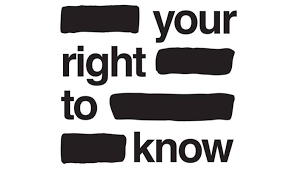What is Abuse of Power?
Abuse of power is typically seen when a public official uses their position or authority unlawfully. This often occurs in decision-making processes.
Where does abuse of power occur?
Any public official in any government agency can abuse their power. Unfortunately, abuse of power is seen more often in agencies that deal with disadvantaged and vulnerable people, and particularly those in the criminal justice system. While abuse of power is often committed by individuals within government agencies, the culture of government agencies can be toxic and therefore encourage abuse.
What are examples of abuse of power?
Obvious examples include overt offensive conduct towards another person, such as bullying, assault, sexual abuse, blackmail and coercion, threats etc. This type of abuse was highlighted in the 2021 report titled: ‘Evaluation of the Practices, Policies and Procedures of the Department for Correctional Services‘, by the Independent Commissioner Against Corruption in South Australia where the Commissioner identified what he termed the ‘Blue Shirt Code‘.
The Blue Shirt Code was said to be employed routinely by middle management of prisons and was designed to coerce officers to cover up the wrongdoing of other officers, particularly wrongdoing against prisoners. Staff who did not conform to the Blue Shirt Code were said to be subjected to bullying and harassment by other staff. Most staff interviewed for the investigation reported witnessing bullying and harassment from staff against staff.
Equally problematic is the abuse of power that occurs behind the scenes, where the person targeted often has no idea the abuse has occurred. This abuse often involves the unlawful and unethical manipulation of administrative systems, processes or documents. This can have significant impact on peoples’ lives. A common example of this abuse is seen when a prison guard, for example, records false or misleading information about a prisoner in a case file note, or an incident report, or even in a case review, deliberately to cause detriment to the prisoner.
How to identify abuse of power
Collecting evidence is crucial to expose and prevent abuse of power. For obvious types of abuse, such as bullying, harassment, assault, etc, this involves obtaining video or audio evidence, or witness testimony from someone who saw the abusive conduct.
Administrative abuse, however, requires access to documents and records created and used by public officials. It can also require an understanding of the specific processes one might be subject to. These documents and information on processes are often hidden but can usually be obtained through Freedom of Information applications. Freedom of Information helps keep public officials to account for their actions and decisions.
Gaslighting by abusers
Public officials guilty of abuse often attempt to dissuade people from using the Freedom of Information process to obtain information by ‘gaslighting’. They attempt to make them believe that they are doing something wrong for seeking to access documents and information. They may attempt to label people who seek to prevent abuse of power as being ‘anti-government’ or ‘against authority’. However, the definition of authority is: the lawful and competent use of power. Therefore, any official who abuses their power is not exercising authority at all. Anyone who is anti-abuse of power is therefore not against authority.
Consideration of the various Freedom of Information Acts confirms the social value of using Freedom of Information process. First, the Freedom of Information Acts are legislated by government. That means the government themselves designed and approved the FOI processes. Secondly, the objective of the Acts include to ‘promote openness in government and accountability of … government agencies‘. See, for example, Freedom of Information Act 1991 (SA).
How to remedy or prevent abuse of power
There are a number of ways to attempt to prevent or remedy abuse of power. Administrative law remedies may be found through, for example, Freedom of Information, complaints to the Ombudsman, judicial review by the Supreme Court, through dedicated tribunals or through a tort (civil suit) called Misfeasance in Public Office.
Methods to help prevent administrative abuse include: keeping good records of events, using email or electronic messaging to communicate to ensure accurate records, asking for copies of the policy and procedures relevant to the situation you are in, having a person with you when interacting with authorities.
The best way to deal with abuse of power is dependent on the circumstances of the matter. Resolving abuse can be difficult and often requires legal assistance.

Please note: The information provided is of a general nature only and should not be relied upon as legal advice. You should not rely upon, nor act solely on the basis of the material contained on this website. If you are unsure about your rights and obligations, Level Up recommends that you seek independent legal advice.

